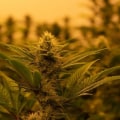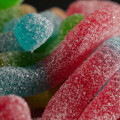Delta-9 THC can be smoked or vaporized in the form of a flower (bud) without the need for extraction, although edibles, topical products and other preparations do require an extraction process. On the other hand, almost all delta-8 THC products are synthesized, extracted and purified from cannabis CBD. Chemically, all deltas have a chain of carbon atoms with a double bond in their structure. The location of the double bond defines each cannabinoid: delta-9 has it in the ninth carbon, delta-8 in the eighth, etc.
It is believed that the location of this double bond makes delta-9 THC more potent than the other two. While delta-9 is intoxicating, CBD isn't. THC stands for delta-9-tetrahydrocannabinol or Δ-9-tetrahydrocannabinol (Δ-9-THC). It is a cannabinoid molecule found in marijuana (cannabis) that has long been recognized as the main psychoactive ingredient, that is, the substance that makes people who use marijuana feel high.
The problem with that standard is that total THC is always higher than THC delta-9, so farmers in states with total THC have less room for error in THC levels for compliance testing. Research on the effects of THC (or delta-9-THC) is complicated by many factors, but there is sufficient evidence that THC can be harmful, especially for younger people whose brains are still developing.



